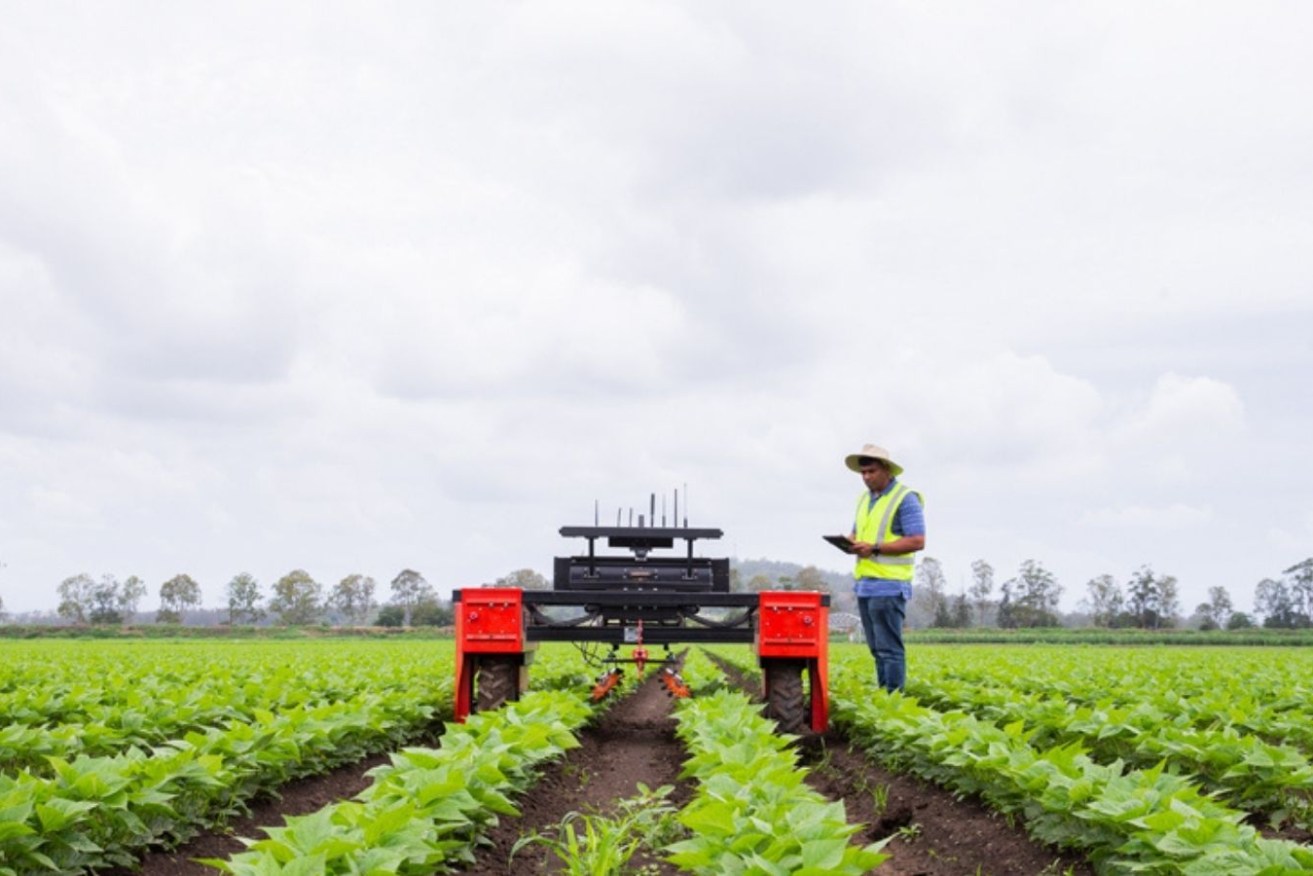From salad bowl to Silicon Valley: how the west has won Queensland’s ag-tech race
The western corridor between Brisbane and Toowoomba is in the fast lane of the new technology super highway that will carry Australian agriculture into the future.


Australia's agriculture exports are set to top a record $80 billion.(file image)
Is the region’s reputation as Queensland’s ‘salad bowl’ about to be switched to ‘Silicon Valley’?
Events of the past month would suggest the stretch of country that follows the Warrego Highway from the Ipswich Motorway to Toowoomba is being fast-tracked for a whole new profile, more closely aligned to the region on the US west coast where tech start-ups germinate and take root.
Already home to a breadth of irrigated crops, dairy and beef operations, and Australia’s largest meatworks at Dinmore, the region could soon be just as productive when it comes to growing the next crop of gadgets and gizmos for agriculture.
The latest innovation is the State Government’s plan to turn the Gatton Research Facility into a “Smart Farm” in a bid to accelerate the adoption of new agtech tools in the horticulture sector.
At a cost of $9 million, with joint funding from industry group Hort Innovation, the government’s ambitions for the project include creating a centre of innovation, where public and private researchers can test and develop leading edge technology.
The list of challenges they are trying to solve include the development of higher value products, improvements in supply chain efficiency and faster adoption of automation – a particularly acute pain point for the industry as Covid-induced labour shortages continue to bite.
Managing climate variability, mitigating carbon and reducing waste are also high on the agenda, according to Agriculture Minister Mark Furner.
“Together with industry and commercial partners we’ll create an environment that fosters innovation and problem solving,” he said.
New infrastructure on the site will include climate-controlled glasshouses, a retractable-roof protected cropping structure and cold rooms with the latest controlled-atmosphere technology.
Furner said the new structures, along with the appointment of additional senior research specialists, would boost efforts to combat pests such as Serpentine Leafminer and Fall Armyworm, and other crop diseases.
Last week’s announcement came as the Federal Government, in tandem with Hort Innovation, launched its strategy paper for the protected cropping industry, a document to provide direction and support for crops grown under shelter
Federal Agriculture Minister David Littleproud said such systems harboured the potential for new markets to develop here and overseas.
Hort Innovation Australia CEO Matt Brand said protected cropping-based horticultural production was tipped to grow considerably.
“From high-tech glass houses to basic covers and nets, protected cropping is becoming a popular choice for Australian horticulture,” he said.
Gold Coast grower Belinda Frentz, deputy chair of peak vegetable growers’ organisation Ausveg, said the development of “climate-resilient, cost-effective protected cropping systems” would form a key part of the Gatton farm’s mission, along with the drive to accelerate new discoveries in automation and post-harvest technology.
“The Gatton Smart Farm will be one of Australia’s leading vegetable research centres,” she said.
“Queensland vegetable growers are vital contributors to the national $4.8 billion vegetable industry that supplies high-quality fresh vegetables to families around Australia and across the world.
“It is important that government and industry continue to invest in projects such as this to build the skills and capacity of vegetable growing businesses to encourage adoption of new technologies and innovations.”
Toowoomba’s University of Southern Queensland is preparing for the day when the transformed sector will need farmers with new skills.
As of next year, USQ will offer a Bachelor of Agriculture Technology and Management, a first for Queensland and one of two offered in Australia.
Associate Professor Keith Pembleton, who specialises in computational agriculture, said the degree offered courses from multiple disciplines including precision agriculture, GIS, big data and machine learning, business skills, entrepreneurship and the legal fundamentals associated with AgTech.
“Harnessing the future of farming is a critical area of study and research and the advanced application of agricultural technology requires a specific skillset that is highly sought after by the agricultural sector,” he said.
“The Bachelor of Agricultural Technology and Management will equip students with the skills and knowledge necessary to drive the agtech revolution and help feed and clothe the world.”
USQ is a partner of the AgTech and Logistics Hub, a collaboration established in 2020 and also funded by the Queensland Government in association with the FKG Group, Toowoomba and Surat Basin Enterprise, and the University of Queensland.
Its community manager Stephen Dummett said Toowoomba was the obvious choice for Queensland’s agtech headquarters.
“Nearly every major farm commodity that Queensland produces is grown within a 200-kilometre radius of Toowoomba,” he said.
“There is already a well-established network that gives a project like this an enormous head start to scale-up quickly.”
Hort Innovation head of extension Jane Wightman said access to new technologies had never been more important.
“Horticulture is the fastest-growing agricultural sector in Australia – with a 27 per cent hike in value over the past five years to $15.1 billion, and our modelling shows that figure could double by 2030,” Wightman said.
“Technology adoption will be key to keeping pace with this rapid growth, however, that can prove a challenge.
“The Gatton Smart Farm will help growers to ‘de-risk’ agtech, by enabling them to select and experience the latest technologies firsthand and understand the costs and benefits of adoption.”









